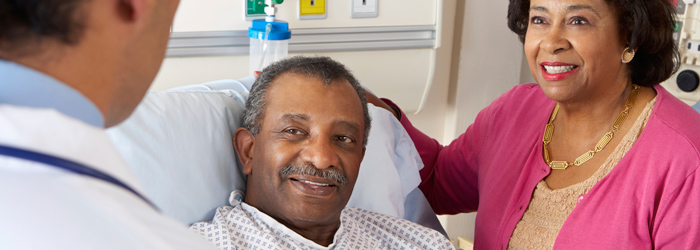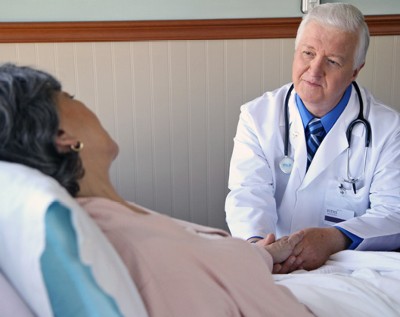Aspects of a Good Death: Physicians and Families Often Agree with Patients, but Some Divergence Exists

Themes of a Good Death
While patients, their family members and healthcare professionals (HCPs) all identify the same three themes of a good death as most important, for some other elements of “successful dying,” the perspectives of these groups tend to diverge. This is according to the results of a first-of-its-kind review published in the American Journal of Geriatric Psychiatry.
“The discrepancies among patient, family member and HCP perspectives on successful dying in this review indicate a critical need for a dialogue about death among all stakeholders involved in the care of each individual patient,” write the authors.
“[A]n important goal of this review is to issue a call for action to the professional and lay community to accelerate its open dialogue regarding death and dying, as the United States has a largely ‘death-phobic’ culture.”
Investigators identified 11 core themes of a good death from an international literature review of quantitative and qualitative studies published in English between 1996 and 2015 that resulted in 36 relevant articles. “Stakeholders” in the definition of a good death included patients (mean age in most studies, > 65 years), family members (both pre-bereaved and bereaved) and HCPs (physicians, nurses and others).
The 11 core themes of a good death included preferences for a specific dying process, pain-free status, religiosity/spirituality, emotional well-being, life completion, treatment preferences, dignity, family, quality of life and relationship with HCP.
“This is the first time that data from all of the involved parties have been put together,” says senior author Dilip V. Jeste, MD, director of the Stein Institute for Research on Aging at the University of California, San Diego, School of Medicine. “Death is obviously a controversial topic. People don’t like to talk about it in detail, but we should. It’s important to speak honestly and transparently about what kind of death each of us would prefer.”
Top Themes for All Groups
- All participants said they valued high quality end-of-life care
- Preferences for a specific dying process (patients, 100%; families, 100%; HCPs, 94%), with subthemes including the death scene (such as being home rather than in the hospital) and preparation for death (e.g., advanced directives and funeral arrangements)
- Pain-free status (patients, 85%; families, 90%; HCPs, 85%)
- Emotional well-being (patients, 60%; families, 70%; HCPs, 67%)
Diverging Views
“Patients view the end of life as encompassing not only the physical components of death but also psychosocial and spiritual concerns,” observe the authors. While patients were in agreement with the family and HCP groups for the top two qualities of a good death, patients’ third-highest theme of importance— religiosity/spirituality (65%)—was endorsed by fewer in the family and HCP groups (50% and 59%, respectively). In contrast, patients placed less emphasis on treatment preferences than did the other two groups (55% vs 70% for family and 61% for HCPs).
“Clinically, we often see a difference between what patients, family members and healthcare providers value as most important near the end of life,” says lead author Emily Meier, PhD, a clinical psychologist at Moores Cancer Center at UC San Diego Health, La Jolla, CA. “Ultimately, existential and other psychosocial concerns may be prevalent among patients, and this serves as a reminder that we must ask about all facets of care that are essential at the end of life.”
Hospice care teams are multidisciplinary and include clergy or spiritual counselors, note the authors. “However, in our current sample not all the patients were receiving hospice services, which might have contributed to a lack of recognition [by HCPs] of the importance of religiosity/spirituality, because many organizations and hospitals do not have clergy members or spiritual counselors available on site, especially for diverse groups of patients.”
Families rated certain themes higher than patients did. These included:
- Life completion (families, 80% vs patients, 55%)
- Dignity (70% vs 55%)
- The presence of family (70% vs 55%)
HCPs valued pain control and patient preferences for where and how they died, with less emphasis on the psychosocial and existential aspects, note the authors. “Physicians, nurses and other HCPs viewed optimal pain control and keeping the patient comfortable as a requirement for a good death,” they write. “This is also consistent with the overall philosophy of hospice and palliative care, which focuses on decreasing pain and suffering while improving quality of life for both patients and family members.”
Just Ask the Patient
“Although individuals in many states in the country are formally asked and encouraged to consider advance directives and organ donations,” observe the authors, “should we, as clinicians, also not ask our older patients to stipulate their preferences for the dying process?
“If, as a society, we begin to address the question of how people want to die and what they actually need and want at the end of their lives, perhaps we can enable more people to obtain a good death, reaching their full potential, with dignity and whole-person well-being.”
The bottom line is “Ask the patient,” says Jeste. “Usually, patients know what they want or need and there is relief in talking about it. It gives them a sense of control. I hope these findings spur greater conversation across the spectrum.”
Source: “Defining a Good Death (Successful Dying): Literature Review and a Call for Research and Public Dialogue,” American Journal of Geriatric Psychiatry; April 2016; 24(4):261-271. Meier EA, Gallegos JV, Montross-Thomas LP, Depp CA, et al; Department of Psychiatry; Sam and Rose Stein Institute for Research on Aging, Moores Cancer Center, Psychiatry & Psychosocial Services, La Jolla, California; Patient and Family Support Services, and Department of Family Medicine and Public Health, University of California, San Diego, La Jolla.

Check Hospice Guidelines
Get diagnosis-specific guidelines in our hospice eligibility reference guide.
Hospice Guidelines by Diagnosis Refer Your Patient